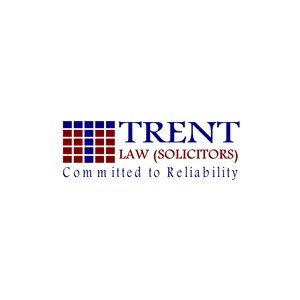Best Wrongful Termination Lawyers in Sheffield
Share your needs with us, get contacted by law firms.
Free. Takes 2 min.
List of the best lawyers in Sheffield, United Kingdom
About Wrongful Termination Law in Sheffield, United Kingdom:
Wrongful termination, also known as unfair dismissal, occurs when an employee is dismissed from their job in a way that violates the terms of their employment contract or the general employment laws in place. In Sheffield, as in the rest of the United Kingdom, employees are entitled to fair treatment, and any dismissal that is seen as unfair could provide grounds for legal action. Employees should be provided with a clear reason for their termination and, in some cases, the right to a fair hearing before dismissal.
Why You May Need a Lawyer:
You may require legal assistance in instances where you believe you have been dismissed unfairly or unlawfully. This includes termination based on race, age, sex, pregnancy, religious beliefs or disability (as protected by the Equality Act 2010), or being dismissed for raising health and safety concerns through whistleblowing. A lawyer can guide you through the complexities of employment law and wrongful termination cases, help you understand your rights and craft the strongest possible case should you decide to take your former employer to an Employment Tribunal.
Local Laws Overview:
The Employment Rights Act 1996 is the key legislation applicable to wrongful termination cases in Sheffield, UK. It provides employees with certain statutory rights, such as the right not to be unfairly dismissed. Also, the Equality Act 2010 is highly relevant as it prohibits discrimination in employment. Depending on the context, the Public Interest Disclosure Act 1998 which protects whistleblowers from reprisals, could also be significant.
Frequently Asked Questions:
What constitutes as Wrongful Termination?
Wrongful termination refers to an unfair dismissal, which includes firing for discriminatory reasons, dismissal without proper notice or without a fair reason, or dismissal for whistleblowing.
How can a lawyer help in wrongful termination cases?
A lawyer can help by providing legal advice, representing you in discussions with your employer or at the Employment Tribunal, and possibly negotiating a settlement. They can also help you understand your rights and navigate through legal complexities.
What kind of compensation can I expect?
Compensation in wrongful termination cases usually consists of a basic award and a compensatory award. The basic award is calculated based on your age, salary and length of service, while the compensatory award is based on financial loss suffered as a result of the dismissal.
How long do I have to bring a wrongful termination claim?
In general, you have three months less one day from the date of your dismissal to make a claim to an Employment Tribunal, though there are exceptions in certain circumstances.
What is an Employment Tribunal?
An Employment Tribunal is an independent judicial body that adjudicates disputes between employers and employees related to employment rights. This could be your destination if you decide to bring formal charges against your former employer.
Additional Resources:
The Advisory, Conciliation and Arbitration Service (ACAS) provides free and impartial advice on workplace rights, rules and best practices. In addition, organisations like the Citizens Advice Bureau can offer free legal aid and guidance. Sheffield also has local law centres that provide legal support in employment way matters.
Next Steps:
You should begin by keeping all relevant documents and correspondence related to your dismissal. This could include termination letters, email exchanges, or written details of any related conversations. Consult an experienced employment lawyer in Sheffield, who can advise you on the strengths of your case and the appropriateness of a tribunal claim. Remember to file your application with the Employment Tribunal within the stipulated time limit.
Lawzana helps you find the best lawyers and law firms in Sheffield through a curated and pre-screened list of qualified legal professionals. Our platform offers rankings and detailed profiles of attorneys and law firms, allowing you to compare based on practice areas, including Wrongful Termination, experience, and client feedback.
Each profile includes a description of the firm's areas of practice, client reviews, team members and partners, year of establishment, spoken languages, office locations, contact information, social media presence, and any published articles or resources. Most firms on our platform speak English and are experienced in both local and international legal matters.
Get a quote from top-rated law firms in Sheffield, United Kingdom — quickly, securely, and without unnecessary hassle.
Disclaimer:
The information provided on this page is for general informational purposes only and does not constitute legal advice. While we strive to ensure the accuracy and relevance of the content, legal information may change over time, and interpretations of the law can vary. You should always consult with a qualified legal professional for advice specific to your situation.
We disclaim all liability for actions taken or not taken based on the content of this page. If you believe any information is incorrect or outdated, please contact us, and we will review and update it where appropriate.













